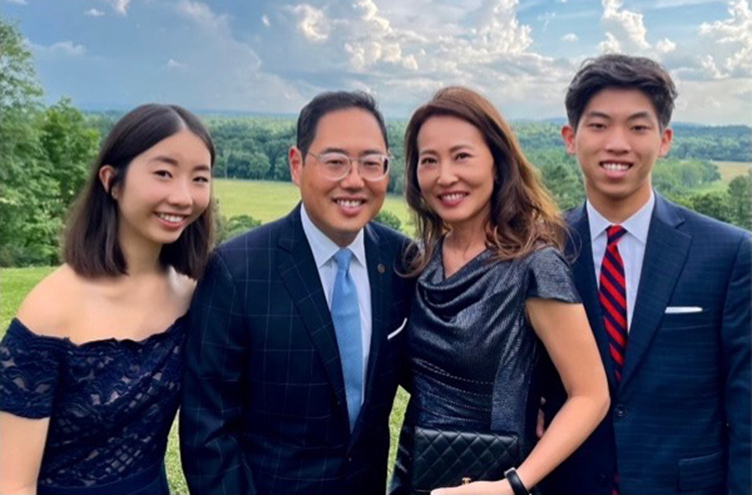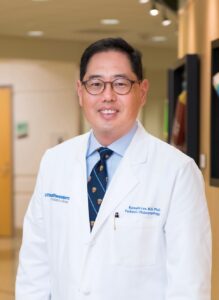
Kenneth H. Lee, MD, PhD, is the John W. & Rhonda K. Pate Professor of Otolaryngology—Head & Neck Surgery at UT Southwestern Medical Center. Lee specializes in pediatric otolaryngology and serves as director of the Pediatric Cochlear Implant Program at UT Southwestern, director of Pediatric Otolaryngology, UT Southwestern Pediatric Group Plan, and chief of surgery at Children’s Health Plano.
Lee received his medical degree and a doctorate in anatomy and neurobiology from Boston University. He completed his residency in otolaryngology at Washington University in St. Louis and a fellowship in pediatric otolaryngology at Cincinnati Children’s Hospital Medical Center.
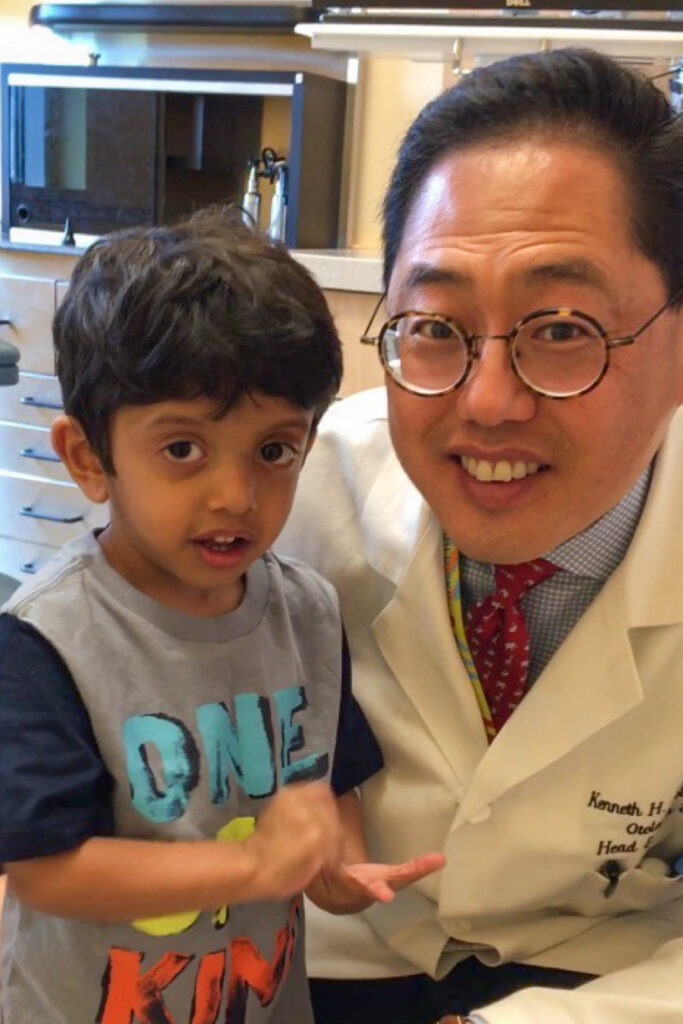
What do you find most rewarding about your work?
I have the privilege of taking care of children as a pediatric otolaryngologist. My practice is focused on otology and my passion is helping children with hearing loss. The most rewarding thing I find clinically, is to provide hearing to a deaf child through cochlear implantation. I also get to couple this with my ongoing research efforts in developing a novel self-coiling cochlear implant electrode array designed for superior functional outcomes. Work initially done during my lab years at WashU is what led me to this current research focus.
How has your training at WashU affected your career?
Training at WashU was critical in laying the foundation of my career. We had the privilege of being taught by some of the world’s best known leaders in otolaryngology in a department rich in the history of pioneering head and neck surgery.

While our attendings were fantastic teachers, we also learned much from our fellow residents, particularly our chief residents. I am continually inspired to reach further when I see the colleagues I trained with carry on the WashU tradition and become the next generation of leaders in otolaryngology. For example, my chief resident from PGY-2 year and friend John Sunwoo, MD (Class of 2003), is now an associate dean at Stanford Medical School.
What is your most memorable moment training at WashU?
So many to recall, but one of the best was at our graduation when my class and I presented Brian Nussenbaum with the faculty teaching award. Our gift was a bronzed copy of his hand that was autoclavable and could be used as instrument in surgery to ensure that all pec flap tunnels could accommodate the “Nussenbaum four fingers” and thus, put an end to pec flaps at WashU with compromised blood supply due to a narrow tunnel. Standing next to me was Baran Sumer, MD, who I started residency with, as the PGY-2’s on the head and neck service.
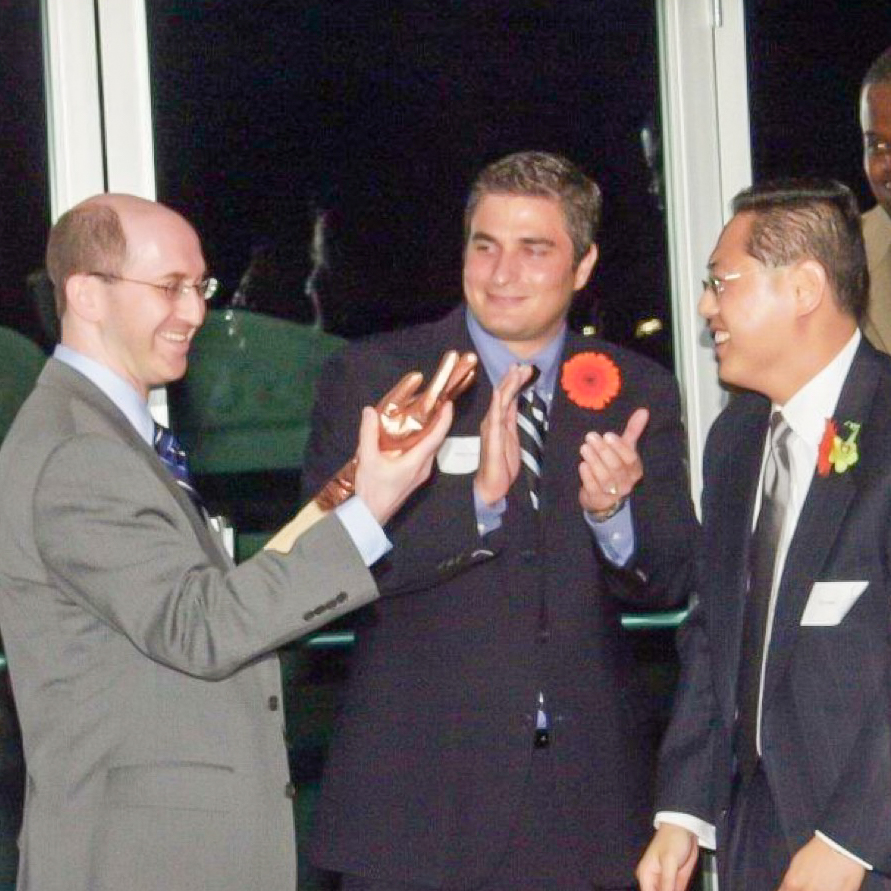
Baran and I are still together as faculty at UT Southwestern and we often greet each other with a “Hey Feller” in the Gail Neely tradition. Recently, we hosted Brian Nussenbaum as the graduation speaker for our chief residents in Dallas.
Any advice for medical students looking to specialize in otolaryngology?
Otolaryngology is a fantastic field because you have so many options even after choosing your specialty. You can become an authority in one focused area as a sub-specialist or you can provide expert care in a variety of areas as a comprehensive otolaryngologist. Find your niche, and then as any great surgeon, carve it!
Any parting thoughts?
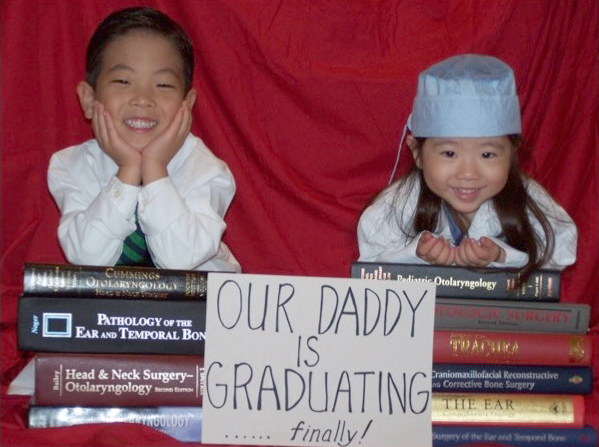
At any milestone, like a graduation, remember the many people who helped you get there and that some are at least as happy as you at that moment.
In my case, the person who took the photo of our kids the week I graduated from residency has always been there for me. My wife Kristina never left my side, and for that I am truly grateful for my loving family. Never forget your family and also remember we are all a part of the WashU Otolaryngology family, something I appreciate more and more as time goes on.
